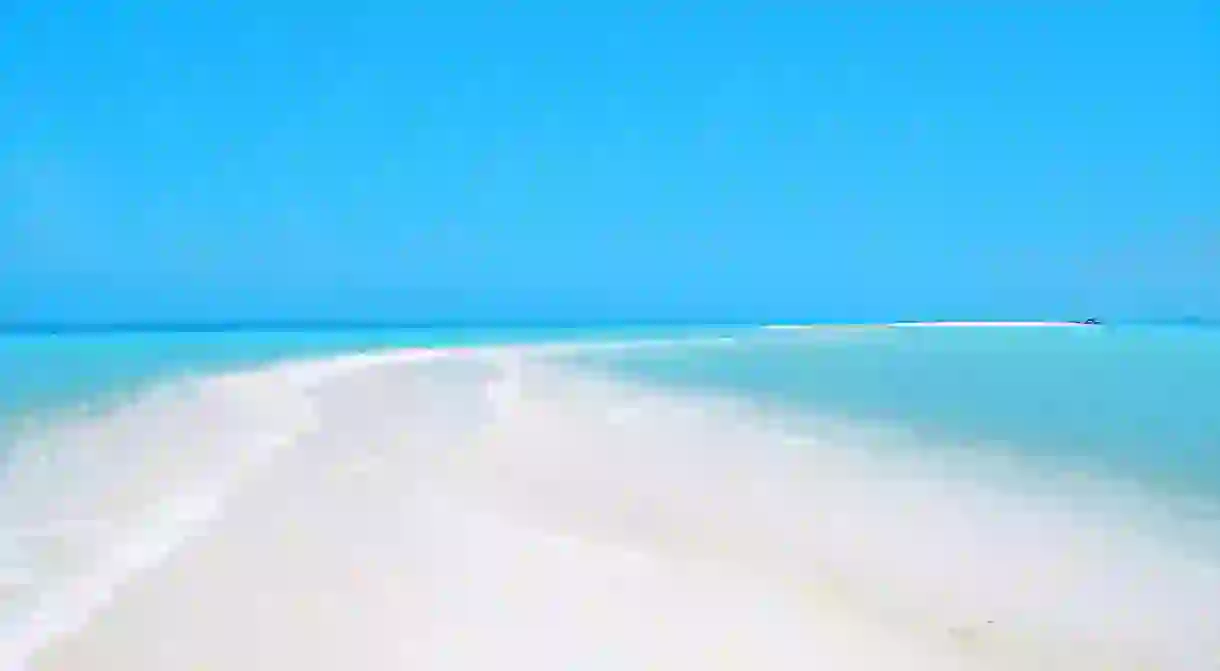13 Natural Wonders in New Caledonia That Will Take Your Breath Away

Melt into the world heritage lagoons or stand in awe of the stunning caves, cliffs and rock faces of New Caledonia — the island nation where nature truly comes out to show off. Immerse yourself in these ravishing scenes on France’s little piece of tropical paradise in the South Pacific.
Oro Bay, Isle of Pines
Oro Bay is home to an enchanting natural swimming pool. This perfectly formed swimming hole on the famous Isle of Pines is a natural basin cut out of the coral, boasting crystal clear waters and a backdrop of tall pines.

Nokanhui atoll
Fairytale atolls can be found across the South Pacific but none as striking as Nokanhui. On a clear day, the blue skies melt into the aqua horizon, broken only by the white sands and gentle surf.

World Heritage Lagoons
New Caledonia’s lagoons and coral reefs are world class, and have the official title to match. The lagoons are officially recognised as a World Heritage site due to their exceptional natural beauty, diversity and health of the ecosystem in the coral reefs.

Hienghène
Located in northeast New Caledonia, Hienghene is most famous for its incredible geological formation. These limestone rocks, with names such as ‘Sphinx’ and ‘La Poule de Hienghene’ (‘The Hen Of Hienghene’) command respect as they stand tall and majestically along the coastline.

Dumbea
Dumbea is the closest town to the capital city of Noumea and offers visitors a chance to soak up nature and the unique setting it provides. The Dumbea River is made up of rock pools with spectacularly clear waters, all the while surrounded by lush greenery in the background.

Shabadran Terraces
Found on the island of Mare, the Shabadran Terraces are a unique coastal area of coral cliffs in the formation of terraces. However, it is quite a hike to get there, taking around two and a half hours to reach the shore. But the white sandy beach at the end is worth the effort.

Bonhomme de Bourail
This natural wonder is a striking monolithe rock formation sculpted by waves in Bourail. It gets its name ‘Bonhomme’ — which means gentleman in French — because the formation is said to resemble the profile of a man wearing a hat.

Trou Bleu (Blue Hole), Yate
This beautiful swimming hole is found among the rugged limestone cliffs and waterfall in the village of Yate. A serene spot for a dip, with the sound and view of a waterfall cascading down the rocks in the background. The pool is nearly 100 ft (30m) deep.

Jokin Cliffs
These rugged cliffs on the island of Lifou are made from layers of ancient coral stone, which have been formed over millions of years. It’s not a good place for swimming — as tempting as it looks — due to heavy sea swells and difficult access to the actual water, but it’s a beautiful spot to walk around and take in nature’s incredible history.

Baie des Tortues
Baie des Tortues, or Turtle Bay, has a striking coastline, but its the trees at the beach which showcase New Caledonia’s natural beauty. The trees are the rare Araucaria luxurians, endemic to New Caledonia.

Cœur de Voh
The French word coeur means heart, and it’s a heart which makes Voh famous. There’s an area covered in mangroves on the edge of the lagoon, where there is a natural formation in the shape of a perfect heart. The best way to view the heart is from the sky, of course.
❤❤❤❤❤❤ #nouvellecaledonie #newcaledonia #voh #coeurdevoh #heartofvoh #beautiful #magnifique #awesome #love #instalove #instalover #instalovers #saintvalentin #amour #vueduciel #ciel #sky #skylover #skylovers #skylove #skyview #instasky
A post shared by Charlotte Feuillebois (@chaf04) on Feb 14, 2017 at 12:30pm PST
Upi Bay
Upi Bay is the perfect place for a quiet sail on outrigger canoes. The water is perfectly calm, interrupted only by incredible rock formations which appear to jump out of the ocean. Serenity level: 100.

Koumac Caves
There are a number of cave systems in New Caledonia, including the Tchalabel Caves, Grottes d’Adie and the Koumac Caves. Some have been formed by underground rivers, others were naturally occurring sinkholes. The Koumac Caves in the North Province are a series of limestone caves, around 2.2 miles (3.7km) long, although only the first 350m metres accessible.














